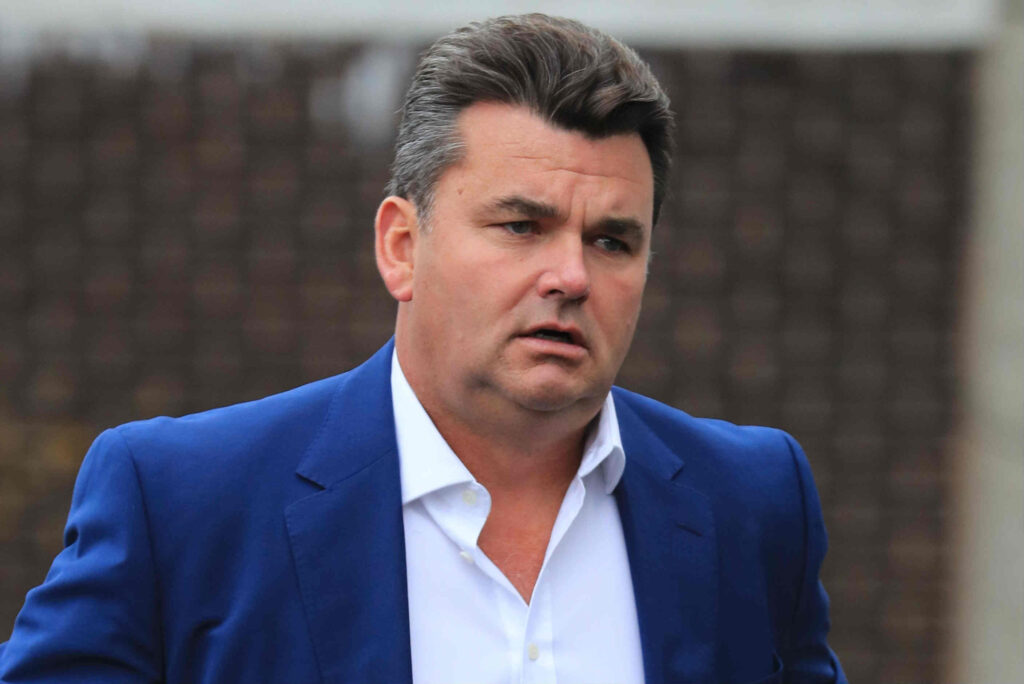// Court hears Dominic Chappell’s defence for evading tax on £2.2m income received when he bought BHS from Sir Philip Green
// Green allegedly refused to allow advisers to see all the financial materials for the deal on loss-making BHS
A series of broken promises and a refusal to sell BHS to a business rival by retail tycoon Sir Philip Green plunged its new owner into a tax evasion nightmare, a jury has been told.
Dominic Chappell, whose consortium controversially bought BHS from Green for £1 in March 2015, denies three charges of cheating the public revenue related to his bankrupt finance company Swiss Rock Ltd.
Chappell is accused of dishonesty regarding VAT, corporation tax and income tax between January 2014 and September 2016.
READ MORE:
- Dominic Chappell evaded tax on income from buying failed BHS, court told
- A quarter of BHS stores remain vacant since 2016 administration
- Ex-BHS director Lennart Henningson handed 5-year boardroom ban
Last Friday, defence counsel Trevor Burke QC told a jury at London’s Southwark Crown Court that the case is not about “yachts, Bentleys and the Bahamas” but they should ask themselves if there was something which stopped Chappell from paying the taxes.
Green – who had run BHS for 15 years via his Arcadia Group retail empire – allegedly thwarted attempts to rescue BHS by failing to “sort” out a £250 million to £500 million pension deficit as he promised, to secure finance for suppliers and with a blanket refusal to “entertain” the retailer being sold on to rival Mike Ashley, the court was told.
It was also alleged that Green also refused to allow consortium advisers to see all the necessary financial materials as the deal on the loss-making BHS chain was being closed.
The company which was used by Chappell’s group to purchase BHS was called Retail Acquisition Ltd (RAL)
Burke said: “Sir Philip Green would not permit anyone access to the pension scheme materials, so the due diligence by Grant Thornton (the consortium advisers) and others in advising RAL was in its very nature limited due to the non-disclosure.”
Within two weeks of buying BHS, which was losing £1 million a week, the “pension problem exploded”, Burke told the court.
Chappell later began talks to try and sell to Ashley, who was described to the jury as being as “rich beyond the dreams of avarice”.
Ashley, whose business empire includes roles as Sports Direct chief executive and ownership of Newcastle United Football Club, was “content” in trying to “rescue (BHS) and he had the money and muscle to do it”.
Burke said Green would not “entertain the notion of selling to a competitor and refused to engage”.
BHS limped on before collapsing just over a year later into “chaos” for its staff, pensioners and Chappell, causing the loss of 11,000 jobs in April 2016.
The collapse remained in the headlines for months after the revelation of a huge £571 million pensions deficit escalated it into a scandal.
Chappell maintains that BHS was forced into liquidation because of the actions of Green in reneging on promises of financial support for the pension fund and going back on a promise to provide working capital to BHS after the sale.
His defence suggests that, had BHS not failed, he would have had the funds to pay his tax liability.
The prosecution alleges that Chappell evaded paying tax on £2.2 million of income he received from the BHS deal and instead used it to buy a Bentley car and a yacht.
In his opening statement to the jury, Burke said that, not long after buying BHS, and because of circumstances that were out his control, Chappell was “utterly broke” and this is a situation which “continues to this day”.
There was an “assurance” from Green in striking the BHS deal that the pension deficit would be transferred to him and his company debt, the jury heard.
Burke said Chappell was left with the impression that he would be running BHS with a “clean sheet”.
He added: “The pension deficit, as it was, was to be Sir Philip Green’s problem.
“(He said) ‘I will be sorting it’. He reassured everyone.”
With BHS’s finances allegedly being choked off in this way, the jury was told that the Pensions Regulator launched an investigation into the BHS retirement fund which “utterly frustrated” attempts to try and revive the ailing business.
Raising funds for BHS also became difficult, along with a desire to headhunt a titan of industry to become its new chief executive, the court heard.
It was alleged that suppliers, who needed their money upfront to provide goods to stock the shop shelves, would also have been wary of doing business with the cash-strapped BHS that was being sold to Chappell.
Burke said: “Both Sir Philip Green and Dominic Chappell appreciated that the moment BHS was hived off from Arcadia, part of a company that was rich and profitable, suppliers would be uncomfortable dealing with a company that was haemorrhaging money like BHS was.”
Burke also told the jury: “The more that Sir Philip Green realised that his own conduct in having owned BHS for 15 years was subject to scrutiny, he took his ball and left.”
Chappell is charged with providing false or misleading information and also failed to submit VAT returns.
It is alleged that Chappell did not arrange for the correct VAT amounts to be registered and he also did not pay VAT.
Chappell is also accused of failing to pay corporation tax as well as personal income tax from dividends he received from Swiss Rock.
The hearing was adjourned for today.
with PA Wires
Click here to sign up to Retail Gazette‘s free daily email newsletter
















